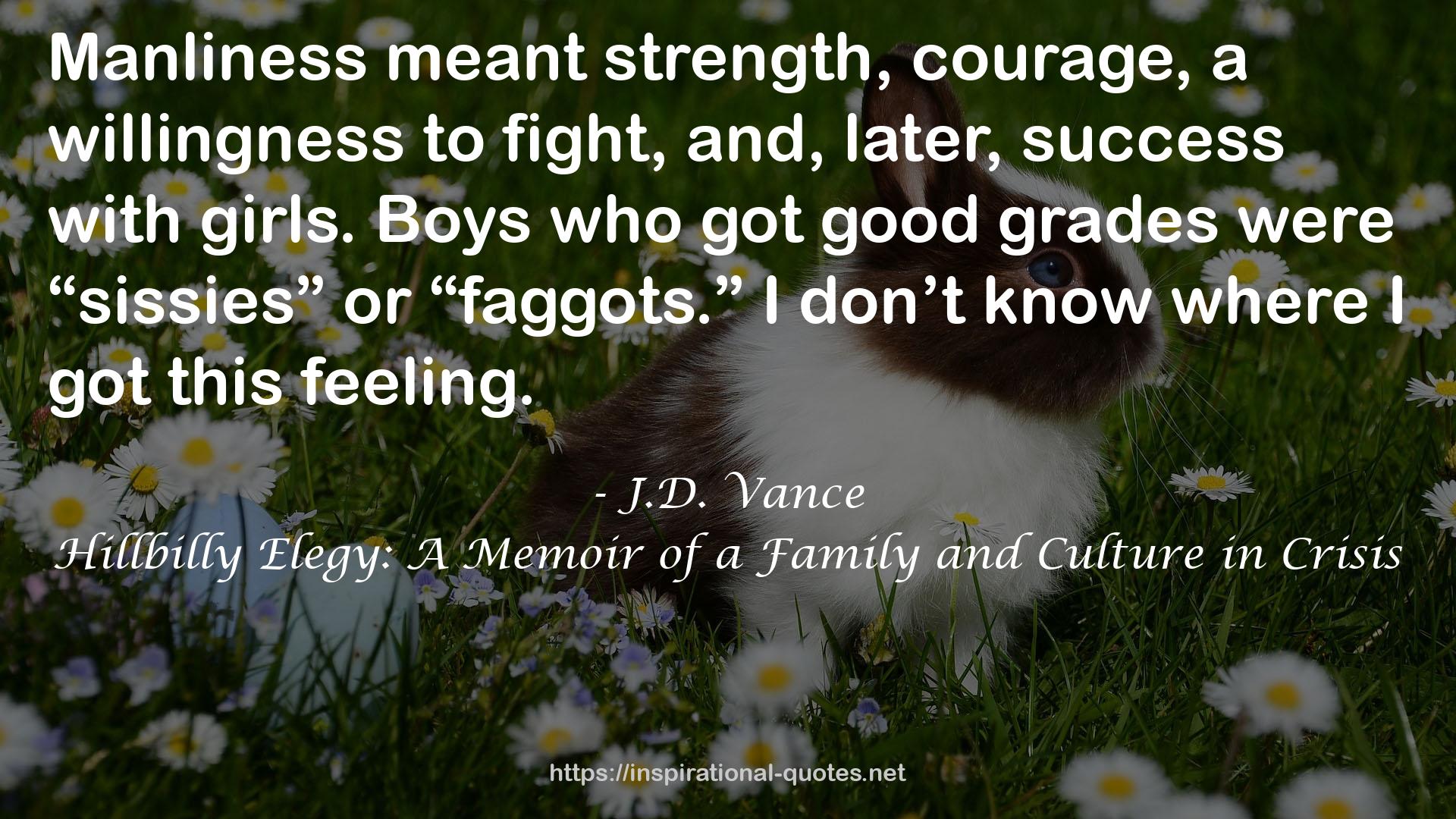163
" Instead, I identify with the millions of working-class white Americans of Scots-Irish descent who have no college degree. To these folks, poverty is the family tradition—their ancestors were day laborers in the Southern slave economy, sharecroppers after that, coal miners after that, and machinists and millworkers during more recent times. Americans call them hillbillies, rednecks, or white trash. I call them neighbors, friends, and family. "
― J.D. Vance , Hillbilly Elegy: A Memoir of a Family and Culture in Crisis

175
" As one book, Appalachian Odyssey, notes about the influx of hill people to Detroit: “It was not simply that the Appalachian migrants, as rural strangers ‘out of place’ in the city, were upsetting to Midwestern, urban whites. Rather, these migrants disrupted a broad set of assumptions held by northern whites about how white people appeared, spoke, and behaved . . . the disturbing aspect of hillbillies was their racialness. Ostensibly, they were of the same racial order (whites) as those who dominated economic, political, and social power in local and national arenas. But hillbillies shared many regional characteristics with the southern blacks arriving in Detroit.”10 "
― J.D. Vance , Hillbilly Elegy: A Memoir of a Family and Culture in Crisis
178
" tried to go to a counselor, but it was just too weird. Talking to some stranger about my feelings made me want to vomit. I did go to the library, and I learned that behavior I considered commonplace was the subject of pretty intense academic study. Psychologists call the everyday occurrences of my and Lindsay’s life “adverse childhood experiences,” or ACEs. ACEs are traumatic childhood events, and their consequences reach far into adulthood. The trauma need not be physical. The following events or feelings are some of the most common ACEs: •being sworn at, insulted, or humiliated by parents •being pushed, grabbed, or having something thrown at you •feeling that your family didn’t support each other •having parents who were separated or divorced •living with an alcoholic or a drug user •living with someone who was depressed or attempted suicide •watching a loved one be physically abused. ACEs happen everywhere, in every community. But studies have shown that ACEs are far more common in my corner of the demographic world. A report by the Wisconsin Children’s Trust Fund showed that among those with a college degree or more (the non–working class), fewer than half had experienced an ACE. Among the working class, well over half had at least one ACE, while about 40 percent had multiple ACEs. This is really striking—four in every ten working-class people had faced multiple instances of childhood trauma. For the non–working class, that number was 29 percent. I gave a quiz to Aunt Wee, Uncle Dan, Lindsay, and Usha that psychologists use to measure the number of ACEs a person has faced. Aunt Wee scored a seven—higher even than Lindsay and me, who each scored a six. Dan and Usha—the two people whose families seemed nice to the point of oddity—each scored a zero. The weird people were the ones who hadn’t faced any childhood trauma. Children with multiple ACEs are more likely to struggle with anxiety and depression, to suffer from heart disease and obesity, and to contract certain types of cancers. They’re also more likely to underperform in school and suffer from relationship instability as adults. Even excessive shouting can damage a kid’s sense of security and contribute to mental health and behavioral issues down the road. Harvard pediatricians have studied the effect that childhood trauma has on the mind. In addition to later negative "
― J.D. Vance , Hillbilly Elegy: A Memoir of a Family and Culture in Crisis